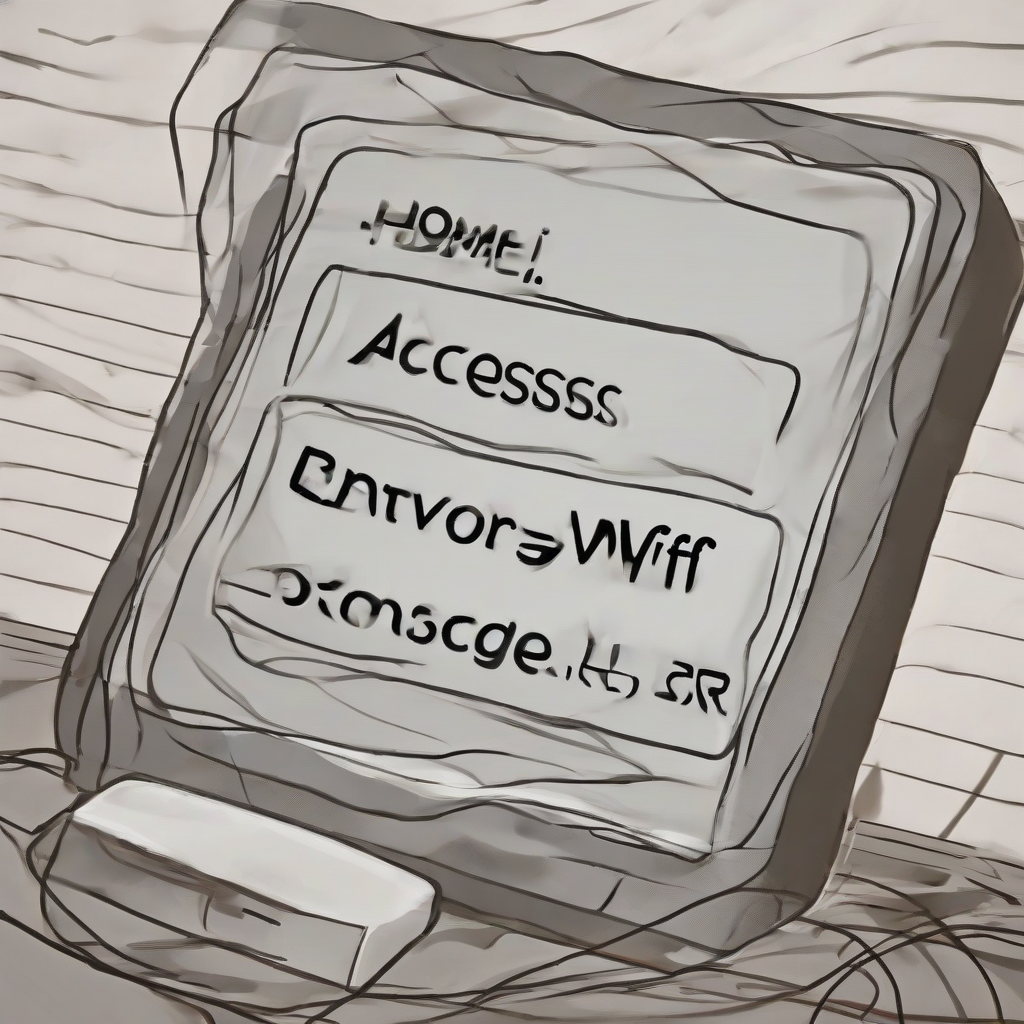Best Home WiFi Internet Providers: A Comprehensive Guide

Best Home WiFi Internet Providers: A Comprehensive Guide
Navigating the world of home internet providers can be a daunting task. With a plethora of options and confusing jargon, choosing the right provider for your needs often feels like an insurmountable challenge. This comprehensive guide aims to simplify the process, providing you with a clear understanding of top internet providers, key factors to consider, and expert tips for making the best decision for your home.
Understanding the Basics
- Internet Service Types: The two main types of internet service you'll encounter are:
- DSL (Digital Subscriber Line): Uses existing copper telephone lines to deliver internet, offering slower speeds than cable or fiber but often more affordable.
- Cable: Delivered over coaxial cables, typically offering faster speeds than DSL, but with potential for congestion during peak hours.
- Fiber Optic: Utilizes fiber optic cables for ultra-fast speeds and high bandwidth, considered the gold standard for internet service.
- Satellite: A good option for rural areas with limited access to other options, but often comes with latency (lag) and higher costs.
- Fixed Wireless: Transmits internet signals via wireless towers, offering decent speeds in some areas but with potential for interference.
- Speed Tiers: Internet providers offer different speed tiers, measured in megabits per second (Mbps). The higher the Mbps, the faster your connection. Consider your internet usage, such as streaming, gaming, or video conferencing, to determine the appropriate speed tier.
- Data Caps: Some providers impose data caps, limiting the amount of data you can use each month. Exceeding the cap can lead to overage charges. Consider your monthly data usage to avoid unpleasant surprises.
- Contract Terms: Be aware of contract lengths and early termination fees. Some providers offer promotions and discounts for long-term commitments.
Top Home WiFi Internet Providers
The best home WiFi internet provider for you depends on your specific needs and location. Here's a breakdown of some of the most popular providers across the US:
Cable Internet Providers
- Comcast Xfinity: One of the largest cable providers in the US, Xfinity offers a wide range of internet plans and services, including bundled TV and phone options. They have a vast network coverage, but customer service has been a point of contention.
- Spectrum: Another prominent cable provider with extensive coverage across the country. Spectrum offers competitive internet plans with various speed tiers, known for its value and often bundled with cable TV and phone.
- Cox Communications: A major cable provider in select areas, offering a variety of internet plans with good speed and reliability. They have a reputation for excellent customer service and robust internet infrastructure.
- Verizon Fios: Although technically a fiber optic provider, Verizon Fios delivers internet through coaxial cables in certain areas. They boast fast speeds and excellent reliability, but coverage is limited.
Fiber Optic Internet Providers
- AT&T Fiber: AT&T's fiber optic service offers lightning-fast speeds and high reliability, but its coverage is limited to select areas. It often comes bundled with other services like phone and TV.
- Google Fiber: Google's fiber optic network provides some of the fastest internet speeds available, but coverage remains limited to certain cities. Their focus on customer experience and innovation sets them apart.
- Verizon Fios: As mentioned earlier, Verizon Fios offers fiber optic internet in select areas, boasting exceptional speeds and reliability. They often have bundled packages with TV and phone services.
DSL Internet Providers
- AT&T DSL: AT&T offers DSL internet service in areas where fiber is not available. It provides decent speeds for basic internet usage but falls short of cable or fiber options.
- CenturyLink: A major DSL provider in rural areas, CenturyLink offers a range of internet plans, but speed and reliability can vary depending on location.
- Frontier Communications: Another DSL provider with a presence in rural areas, Frontier offers internet plans with varying speeds and reliability. Their customer service has been a source of frequent complaints.
Satellite Internet Providers
- Starlink: A satellite internet provider from SpaceX, Starlink offers high-speed internet in rural areas with limited access to traditional internet options. It's known for its expansive coverage and impressive speeds, but comes with a higher monthly cost.
- Viasat: Another major satellite internet provider, Viasat offers service in rural areas with limited access to other internet options. It has a reputation for being more affordable than Starlink but with lower speeds.
- HughesNet: A prominent satellite internet provider with extensive coverage in rural areas. HughesNet offers a range of plans with varying data caps, but its service is often hampered by latency and slower speeds compared to other providers.
Factors to Consider When Choosing a Provider
Once you have an understanding of the different types of internet service and providers, consider these factors to help you narrow down your choices:
- Availability: Check which providers offer service in your area. Use provider websites, comparison tools, or contact them directly to verify availability.
- Speed: Determine the speed you need based on your internet usage. Streaming, online gaming, and video conferencing require higher speeds than basic browsing and email.
- Price: Compare internet plans and prices from different providers. Look for deals, discounts, and bundles that can save you money. Consider the long-term cost, including data caps and overage charges.
- Data Caps: Evaluate your monthly data usage to determine if a data cap will affect you. Choose a provider with a generous data cap or no data cap if you're a heavy internet user.
- Customer Service: Research provider customer service ratings and reviews. Consider factors like response time, resolution rates, and overall satisfaction.
- Equipment and Installation: Understand the costs associated with equipment rentals or purchases, as well as installation fees. Some providers offer free equipment or discounted installation services.
- Contract Terms: Be aware of contract lengths, early termination fees, and promotional periods. Consider the long-term commitment and flexibility of different plans.
Tips for Choosing the Best Home WiFi Internet Provider
Here are some practical tips to help you make the best decision for your home internet needs:
- Use Comparison Tools: Online comparison websites allow you to enter your address and compare plans and prices from different providers in your area.
- Read Reviews: Consult customer reviews and ratings to understand the pros and cons of different providers. Look for feedback on speed, reliability, customer service, and overall satisfaction.
- Contact Customer Support: Reach out to potential providers with any questions or concerns. Gauge their responsiveness and helpfulness to assess their customer service.
- Negotiate: Don't be afraid to negotiate with providers to get a better deal. Many providers are willing to offer discounts or promotions to secure your business.
- Consider Bundles: Explore bundled packages that combine internet with TV or phone services. This can often save you money compared to buying individual services.
- Read the Fine Print: Before signing any contracts, carefully read the terms and conditions. Pay attention to data caps, overage charges, and early termination fees.
Conclusion
Finding the right home internet provider is crucial for staying connected and enjoying a seamless online experience. By understanding the basics, comparing top providers, and considering key factors, you can make an informed decision and choose the best plan for your needs and budget. Don't hesitate to leverage comparison tools, read reviews, and contact customer support to gather all the necessary information to make the right choice for your home.
What's Your Reaction?
















